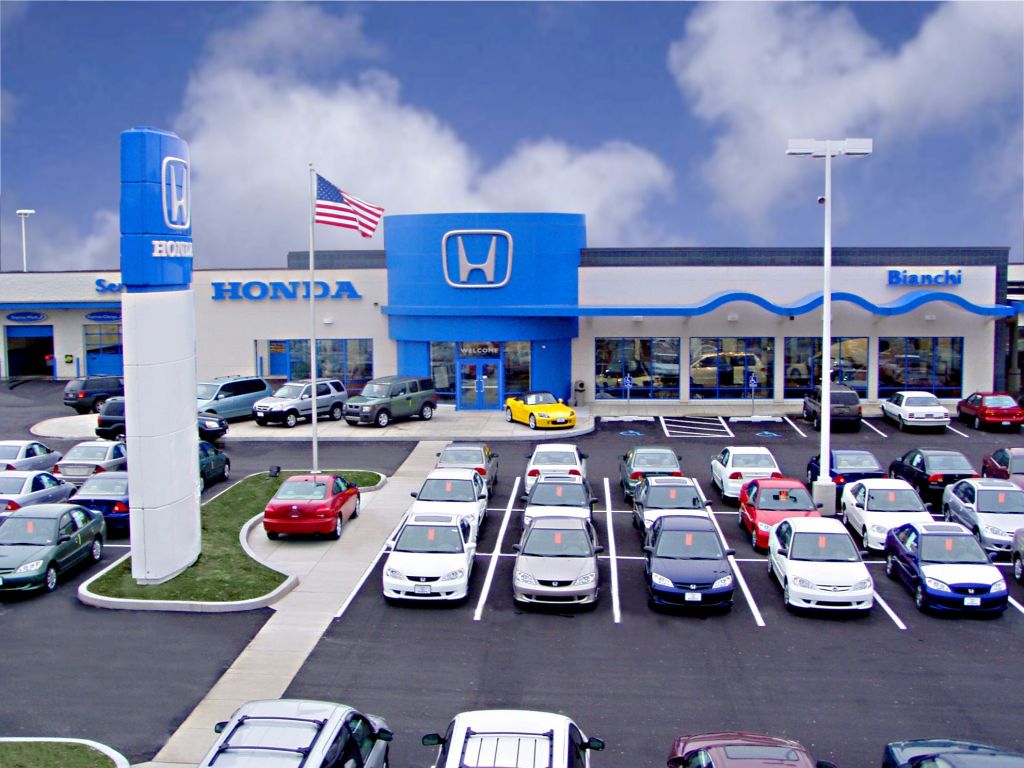In order to successfully open a car dealership you must plan for a variety of costs. Proper planning and consultation with specialists can help you launch your dealership without unnecessary difficulties and last-minute surprises.
Apart from the most straightforward costs, such as your business registration, your location and inventory, there are other costs that you may not think of initially. These include getting legal and accounting advice, obtaining an auto dealer surety bond as well as insurance.
Read on for a breakdown of the cost to start a car dealership!
Cost of opening a car dealership
The total cost of opening a car dealership is generally considered to be upward of $100,000 to as much as $200,000. The reason for the range in the cost is due to the difference in expenses depending on the state you are opening your dealership in, and the type of dealership you will be opening.
For example, opening a used car dealership vs. a dealership that sells new cars can influence the total cost due to the difference in the cost of your initial inventory.
Here are the main costs you will need to deal with as you prepare to open your car dealership.
1. Business registration
The cost of registering your business will vary from state to state, as well as depending on the type of business you will be setting up: a limited partnership (LP), a limited liability company (LLC), a corporation or a sole proprietorship.
For example, registering an LP in Colorado is $50, $70 in California, $125 in Pennsylvania, and as much as $750 in Texas. Registering a corporation also varies greatly among states, with Massachusetts and Texas having the highest fees ($295 and $310, respectively). On average, registering an LLC costs about $110 in the U.S. though this, too, varies.
Moreover, when registering a business, you need to keep in mind that there are yearly filing fees and maintenance fees that most states require. Take these into account as well when deciding on the structure of your business.
2. Business Location
The next expense you will have is renting or buying your dealership location. Prices in this category may vary greatly depending on the type of property you are considering, its location, and the state you are in. Monthly costs for a lease can vary between $8,000 and $20,000 with one source citing about $53,000 in annual fees for renting a shop/garage for selling used cars.
Finding a good location and negotiating a good lease on commercial property can be a complex process. Make sure to be acquainted with the details or get in touch with a professional who can help.
3. Accountant Fees
Already at this stage, or even earlier, you might want to consider hiring a professional to help you out with managing and predicting the expenses. There are many certified public accountants (CPAs) that specialize in working with auto dealers, so you might want to consult one before you continue. Consulting fees for a CPA are typically upward of $200 and below $600 for your first-time consultation.
4. Business License
While you need to register your business as an entity, you must also obtain the relevant business license in your state, before you can open your dealership. Licensing comes with a number of fees which, too, differ from state to state.
Licensing fees sometimes include an application fee, a licensing or permit fee, a fee for your dealer plates, an additional fee for your salesperson and for additional locations (if you plan on opening more than one dealership location).
On the low end, licensing fees can be as low as $50 and as high as $500 or more, such as in Colorado. On average, car dealer license fees vary between $100 and $300.
5. Auto Dealer Bond
Almost all states require that auto dealers obtain an auto dealer surety bond as part of the licensing process. The cost of surety bonds depends on two main factors. First, the bond amount – i.e. the full sum of compensation, also know as the penal sum, that the bond must guarantee. Bond amounts are determined by each state individually and can vary between $5,000 to as much as $100,000 (as is the case in Arizona) and more.
The second factor is an applicant’s credit score, along with their financial statements, personal assets and other financial indicators. Based on the credit score, the surety determines the rate at which an applicant can get bonded. The higher an applicant’s score the lower the rate or bond cost.
For example, applicants with high scores are typically offered rates between 1% and 3% of the total bond amount. For a $25,000 surety bond (such as the one in Texas), applicants with a good credit score can expect to pay somewhere between $250 and $750.
Getting a bond with bad credit is also possible, though rates for such bonds are higher. But by improving their credit score over time, applicants can receive significantly better rates on subsequent bonds.
6. Insurance
There is no nationwide insurance coverage policy for auto dealer insurances. Insurance requirements vary from state to state – both in terms of the coverage amounts as well as in the types of insurance required.
Sometimes there are multiple options. For example, in Illinois, dealers can either obtain three separate insurance policies that cover bodily injury/death per person, per accident and for property damage for a total of $350,000 or get a combined single limit coverage for $350,000.
As with surety bonds, premiums on insurances vary widely, so you will need to consult your insurance provider to get an accurate quote.
7. Inventory
Your inventory is the single largest cost you will have when opening your dealership. How much your inventory will cost you depends on the type of vehicles you will be selling (new or used) as well as the amount and models of vehicles you intend to offer. Needless to say, starting out small and gradually building up is easier and will cost you less.
Based on that logic, your initial investment in inventory will probably be around $100,000 or more. To manage this type of cost you will likely need to get a loan, and a short-term loan may be one possibility.
8. Payroll
Lastly, you payroll expenses are another important item to consider. Good data on average payroll costs per state can be gathered from the National Automobile Dealers Association yearly report.
According to the report, average weekly earnings of dealership employees in the U.S. are about $1,122. Monthly expenses will depend on your initial amount of employees as well as the differences in salaries for the various positions.
9. Other Costs
There is a variety of other costs which are not accounted for above which include: legal consultations, advertising, buying shop equipment and furniture, as well as the cost of launching a website. Make sure to include all of these in your initial plan, because these could easily cost you another $15,000-$20,000.
As you can see, the cost to start a car dealership can vary greatly depending on your location and the type of business you want to start. Do you have experience with managing a dealership? Are there are any important costs which could be added to the list above? Let us know in the comments, we would appreciate your feedback!
Thanks for reading CPA Practice Advisor!
Subscribe Already registered? Log In
Need more information? Read the FAQs




